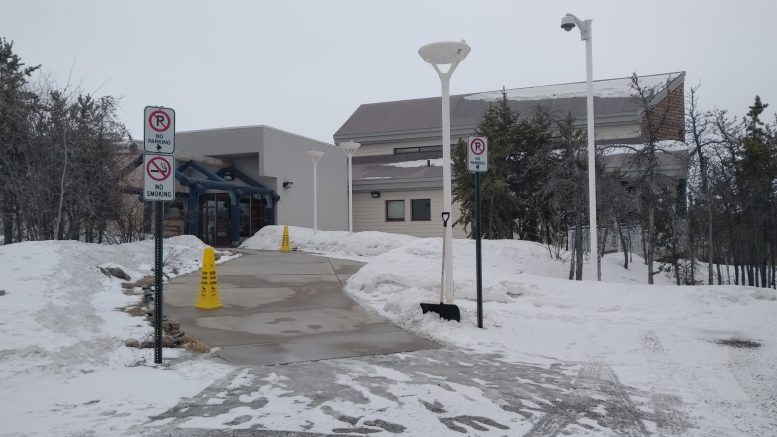The vast majority of offenders in correctional facilities in the Northwest Territories are Indigenous people despite the fact they make up only about half of the territory’s overall population.
CKLB asked the Justice Department of the NWT for the numbers after federal prison numbers were released this week.
“Currently, of all inmates in the NWT – 83% are Indigenous. This has been a fairly consistent number over the last number of years,” stated justice department spokesperson Sue Glowach in an email to CKLB Thursday. “According to NWT Bureau of Statistics in the NWT there were 44,826 people, of which 22,382 reported as Indigenous, or approximately 50% (year 2019). In small communities outside of Yellowknife, this can be 85% or higher.”
The federal numbers show that 30 per cent of inmates in federal prisons are Indigenous even though they only make up less than five per cent of Canada’s overall population.
The number was 25 per cent four years ago, according to the federal government.
The number of Indigenous people in federal prisons has risen despite two Supreme Court decisions that set precedents for judges who are now to take into account Indigenous peoples’ upbringings when sentencing them for crimes.
Yellowknife criminal lawyer Peter Harte believes colonialism and governments’ failure to address its repercussions are the main reasons why the numbers of Indigenous people in custody have remained stubbornly high.
“We have to tackle the social problems that flow almost directly, but at least indirectly, from what colonialism has generated. What puts people in conflict with the law, in my experience, is problems with addictions, problems with trauma and problems associated with poverty,” Harte said. “That’s what we need to be tackling in order to reduce the number of people we have in jail, not incarcerating them.”
He adds that governments need to increase social programming in communities to help people using drugs and alcohol.

Lawyer Peter Harte. (Photo supplied).
Harte has long called for more programming in NWT correctional facilities so offenders will be able to deal with the challenges of life once they are released as well as decreasing the chances of them re-offending.
Harte used a quote by NWT Supreme Court Judge Shannon Smallwood to emphasize that courts alone can’t fix this problem.
“The Supreme Court of Canada emphasized that sentencing Courts have a role to play in addressing this problem, but acknowledged that this is not something that can be dealt with by the Courts alone. Crimes by aboriginal offenders will not end simply because Courts consider alternatives to incarceration for them…What is required is an attempt to deal with the root causes of crime by aboriginal offenders,” Smallwood said.
John has been in the broadcast journalism industry since the 1980s. He has been a reporter in Yellowknife since 2012 and joined CKLB in January of 2018.
John covers the crime and court beat as well as reporting on other areas including politics, business, entertainment and sports.
He won seven national community newspaper awards while he was a journalist with Northern News Services Limited (NNSL).
John worked in Ontario before coming North including stints as a TV sportscaster in Peterborough and senior news writer for CBC and CTV in downtown Toronto.









